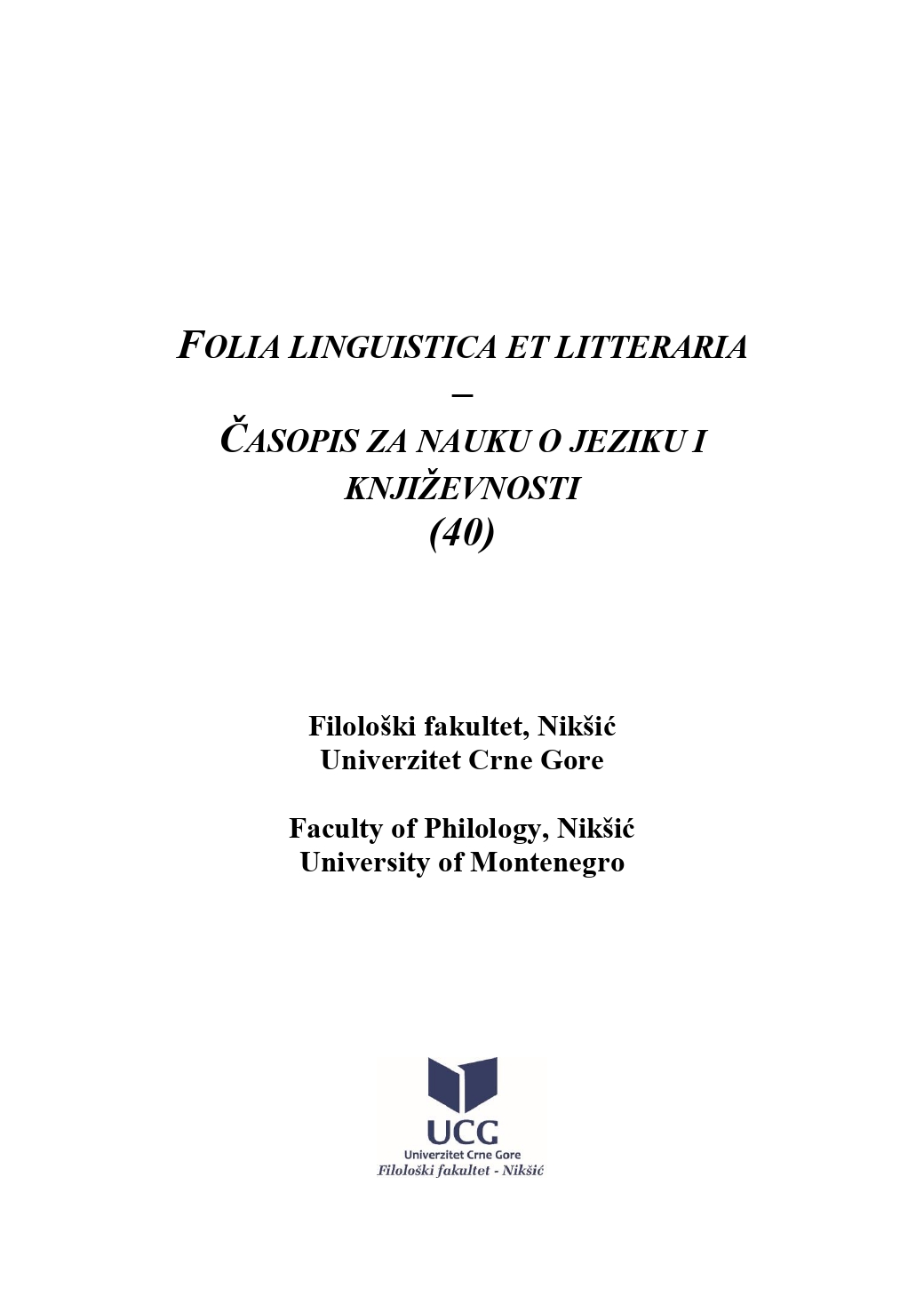Conceptual Worldview in the Works of Ukrainian Writers: The Renaissance Creativity
Conceptual Worldview in the Works of Ukrainian Writers: The Renaissance Creativity
Author(s): Oksana Slipushko, O. Zadorozhna, Olena Gayevska, Olha Lisovska, Anastasiya KatyuzhynskaSubject(s): Language and Literature Studies
Published by: Filološki fakultet, Nikšić
Keywords: anthropocentrism; freedom; history; Renaissance creativity; ruler; state; Ukrainian history; war
Summary/Abstract: This study explores the peculiar features of the conceptual worldview of Ukrainian writers active during the Renaissance (in the late 15th -16th centuries). Its ultimate goal resides in analyzing the most common interpretations of the concepts of history, state, freedom, ruler, and war by authors working on the territory of Ukraine during the Renaissance period and defining the conceptual ideas represented by these concepts. The relevance of this research is explained by the fact that the Renaissance authors appeal to concepts that are significant for any epoch. The specifics of the interpretation of history and its representation in the artistic perceptions of the authors of this period are based on an authentic tradition, the trends of the European Renaissance, and the revival of ancient heritage. In general, the study is grounded in the semantic-cognitive analysis of the works of Renaissance representatives working in what was then the territory of Ukraine (Adam Chagrovsky, Mikolaj Hussowski, Martin Pashkovsky, Sebastian Klonowic, Szymon Pekala, Maciej Stryjkowski, and Stanislaw Orikhovsky). The conceptual fields of each concept selected for analysis were developed in accordance with the individuality of the notions by which Renaissance authors described them. In sum, this paper argues that the worldview of Ukrainian Renaissance writers is characterized by the awareness of the sociopolitical and cultural-literary need to write about history and its role, and to place in the context of world processes. No less critical here is their understanding of the mission of personality in history and the analysis of the activities of historical figures and the reality of that time. Thus, the work of Renaissance authors is predominantly characterized by an expressive anthropocentric, humanistic, and patriotic direction. The practical significance of this research lies in the possibility of applying the semantic-cognitive approach to the analysis of leading concepts in Renaissance creativity.
Journal: Folia Linguistica et Litteraria
- Issue Year: 2022
- Issue No: 40
- Page Range: 9-30
- Page Count: 22
- Language: English

